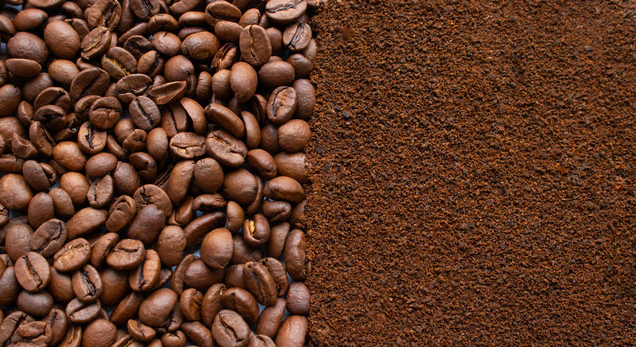Are Coffee Grounds Good for Tomato Plants?
As a coffee lover and avid gardener, I get asked by coffee and plant lovers “Are coffee grounds good for tomato plants?” and have always wondered if they can benefit my own cherished plants.
After all, coffee grounds are rich in nutrients and organic matter, making them a potentially valuable addition to the garden soil.
In this article, I will delve into the topic of using coffee grounds for tomato plants, how to apply the them and share my insights based on personal experience and extensive research.
Understanding the Benefits of Coffee Grounds for Tomato Plants
Coffee grounds have gained popularity among gardeners for their potential benefits. They are packed with essential nutrients, including nitrogen, phosphorus, potassium, and trace minerals. These nutrients play a crucial role in supporting the growth and productivity of tomato plants.
Nutritional Value of Coffee Grounds
When coffee is brewed, a significant portion of its nutrients is extracted, leaving behind the residual coffee grounds. These grounds contain a notable amount of nitrogen, which is essential for promoting vigorous vegetative growth in tomato plants.
Additionally, coffee grounds contribute phosphorus and potassium, vital elements for healthy fruit development and overall plant health.
Improving Soil Structure and Drainage
Coffee grounds can work wonders in improving soil structure, especially in heavy clay soils. The organic matter in coffee grounds helps to loosen compacted soil, allowing better aeration and water drainage.
This is particularly beneficial for tomato plants, as it promotes healthy root development and reduces the risk of waterlogged soil.
Enhancing Nutrient Availability
One of the advantages of coffee grounds is their slow-release nature. As they break down gradually, they release nutrients into the soil, providing a steady supply to tomato plants over time. This enhances nutrient availability and uptake, ensuring that your tomato plants receive a consistent nourishment throughout their growth stages.
Controlling Pests and Diseases
Believe it or not, coffee grounds may have some natural pest-repellent properties. They can deter common garden pests such as slugs, snails, and certain insects. By adding coffee grounds around your tomato plants, you may create a protective barrier against these unwanted visitors, reducing the risk of pest damage.
Preparing and Applying Coffee Grounds to Tomato Plants
To make the most of coffee grounds for your tomato plants, it’s essential to prepare and apply them correctly.
Start by collecting your used coffee grounds and allowing them to dry to prevent mold growth. As covered in how long does coffee last in the fridge, it’s best not to store your coffee beans in the fridge due to humidity. Once dry, you can either mix them directly into the soil or create a compost pile incorporating the coffee grounds.
When applying coffee grounds, moderation is key. Aim for a thin layer of grounds around the base of the tomato plants, avoiding direct contact with the stems to prevent potential fungal issues. Remember that coffee grounds should be part of a well-rounded approach to fertilizing and nourishing your tomato plants, alongside other organic amendments and proper watering practices.
Composting Coffee Grounds
Composting is an excellent way to maximize their benefits and create nutrient-rich compost for your entire garden. Combine coffee grounds with other compostable materials, such as kitchen scraps and yard waste, in a compost bin or pile.
Allow the mixture to decompose over time, turning it regularly to facilitate the composting process. The resulting compost will be a valuable addition to your soil, enriching it with organic matter and vital nutrients.
Using Coffee Grounds as Mulch
Coffee grounds can also be utilized as a natural mulch around your tomato plants. Apply a thin layer of coffee grounds on the soil surface, keeping them away from the plant stems to prevent potential moisture-related issues.
The coffee grounds act as a protective barrier, helping to retain soil moisture, suppress weeds, and regulate soil temperature. As the grounds break down, they contribute nutrients to the soil, further benefiting the tomato plants.
Side Effects and Precautions
While coffee grounds can offer numerous benefits to tomato plants, it’s important to be aware of potential side effects and take necessary precautions. One concern is the acidity of coffee grounds. Although coffee is acidic, the pH of used coffee grounds tends to be closer to neutral.
However, excessive use of coffee grounds can still lead to slight soil acidification over time. It’s advisable to monitor the pH of your soil and adjust coffee ground applications accordingly. Also, while coffee grounds can be good for tomato plants, there are plants that don’t like coffee grounds.
Furthermore, some tomato varieties may be more sensitive to the presence of coffee grounds than others. If you notice any adverse effects, such as stunted growth or yellowing leaves, reduce the amount of coffee grounds or discontinue their use for those particular varieties.
Conclusion
In conclusion, coffee grounds can indeed be beneficial for tomato plants when used properly. They provide essential nutrients, improve soil structure and drainage, deter pests, and contribute to overall plant health. Remember to use them in moderation, incorporate them into compost, and apply them as mulch around your tomato plants. Monitor your plants’ response and make adjustments as needed. For additional information on more plants that like coffee grounds, click here.
So, next time you enjoy a cup of coffee, don’t discard those used grounds. Give them a second life by nourishing your tomato plants and witnessing the potential benefits firsthand. Happy gardening!
FAQs
Can I use coffee grounds directly on tomato plants? Yes, you can use them directly. However, it’s best to apply them as a thin layer around the base of the plants and avoid direct contact with the stems.
How often should I apply coffee grounds to my tomato plants? You can apply them every few weeks during the growing season. However, moderation is key to prevent potential issues related to soil acidity.
Will coffee grounds make the soil too acidic for tomato plants? Used coffee grounds tend to be closer to neutral pH. However, excessive use of coffee grounds can slightly acidify the soil over time. Monitor the pH of your soil and adjust applications accordingly.
Can I use on potted plants? Yes, you can use coffee grounds on potted tomato plants. Apply a thin layer of grounds on the soil surface, ensuring proper drainage to prevent waterlogging.
Are used coffee filters beneficial for tomato plants? Used coffee filters can be added to compost or used in vermicomposting systems to contribute organic matter. They will break down over time and enrich the soil with nutrients.
Can I grind up coffee myself? Yes. Check out this article about how to grind coffee beans.




